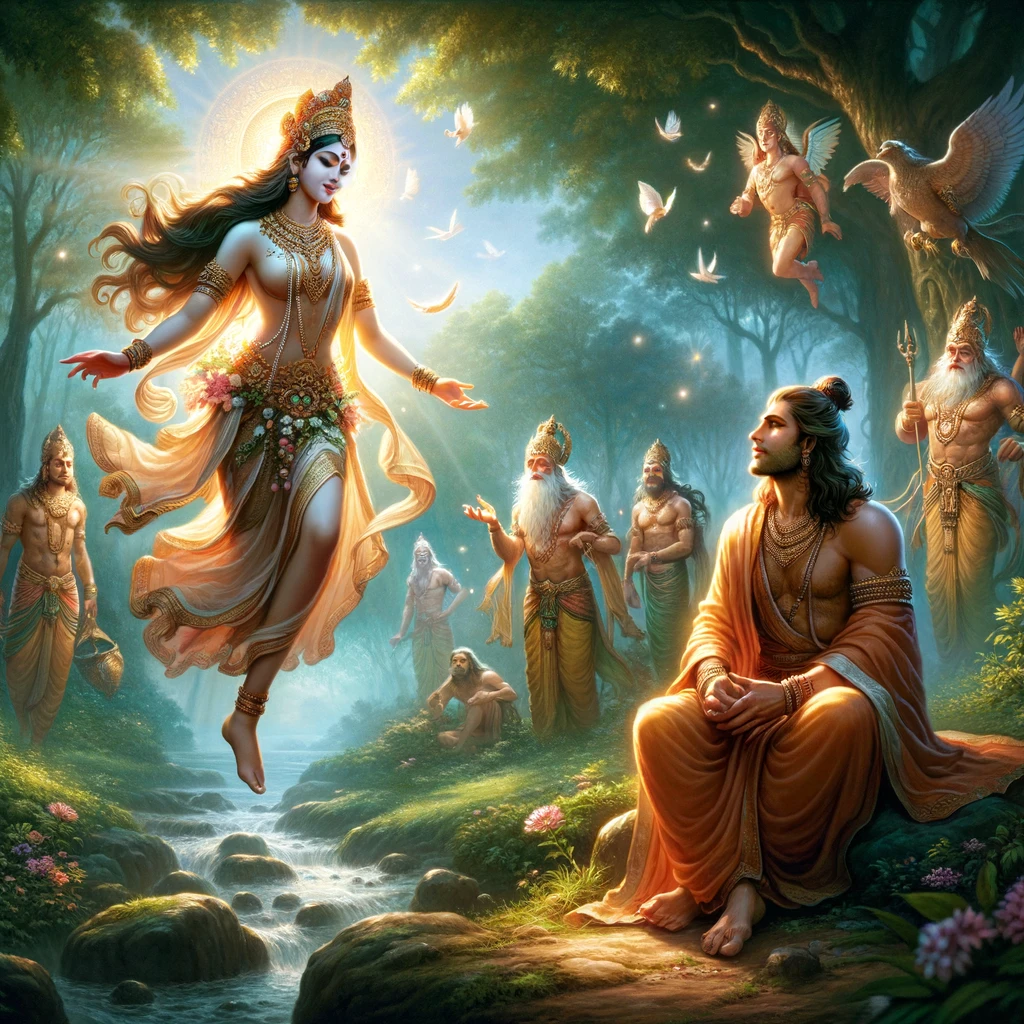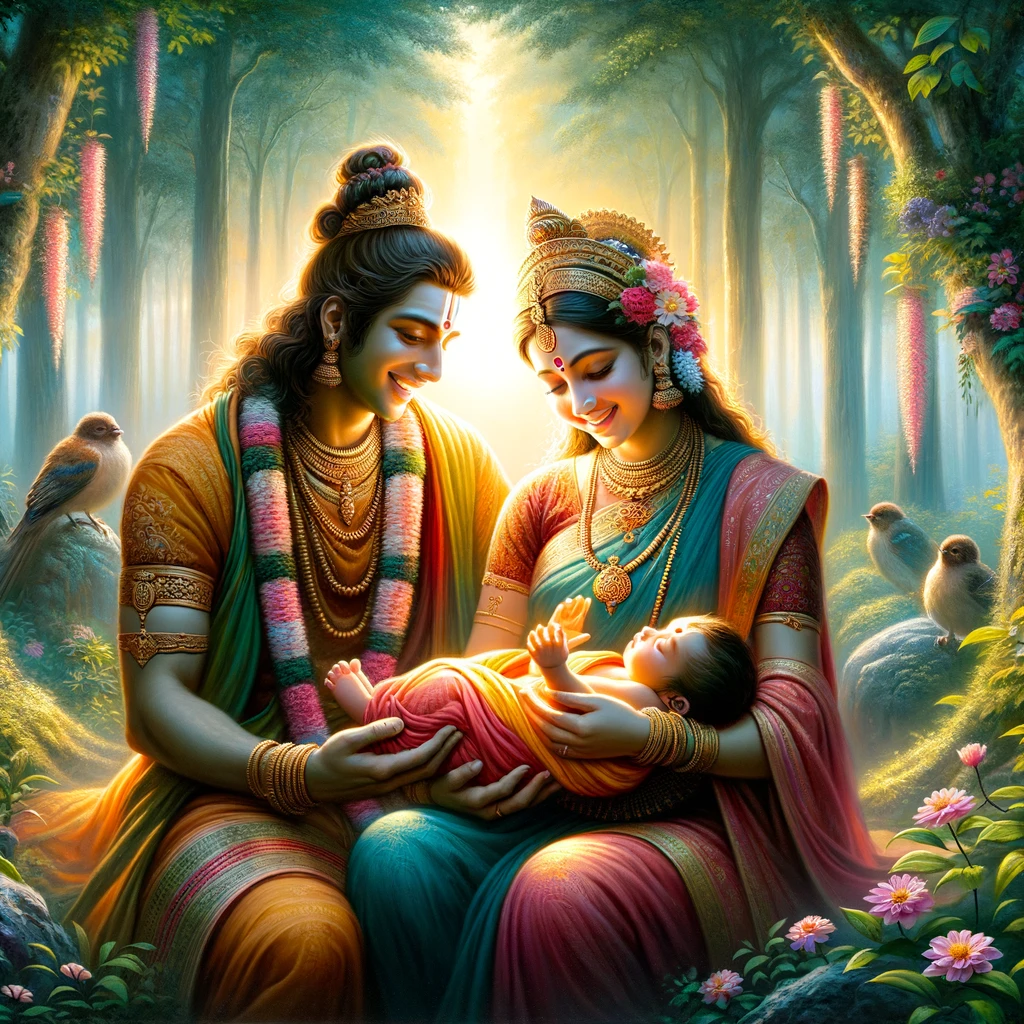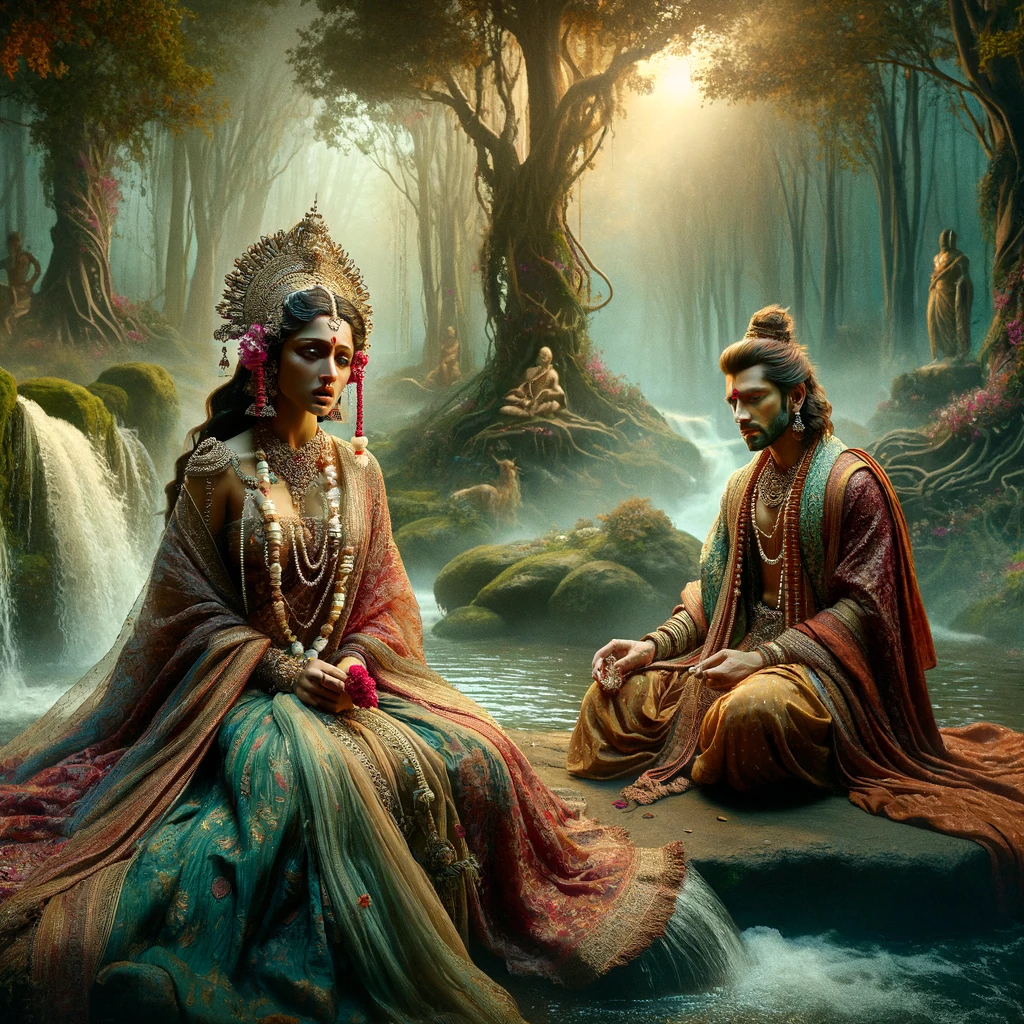Within the verdant realms where ancient tales whisper the secrets of the cosmos, there unfolded a story of divine intrigue and mortal yearning. It was in this mystical backdrop that Lord Indra, the ruler of the heavens, found himself in the grip of fear. He feared the ascetic might of Sage Vishwamitra, whose severe tapasya threatened to overshadow the celestial hierarchy itself. To safeguard his dominion, Indra conceived a plan, a plan that would weave the threads of destiny in unexpected ways.

From the ethereal courts of Amaravati, he summoned Menaka, an apsara of unparalleled beauty and grace, and dispatched her to the mortal world with a singular mission: to disrupt Vishwamitra’s meditations. Menaka descended upon the earth; her beauty illuminated by the ethereal glow of the heavens. The moment Vishwamitra laid eyes on her, the universe seemed to stand still. Her delicate footsteps upon the forest floor echoed like a melody, captivating his heart and distracting his mind from the chants of meditation. Despite his years of ascetic discipline, Vishwamitra found himself drawn to the celestial beauty, his resolve waning under the spell of Menaka’s grace.
Their union was inevitable, born of divine intervention and mortal weakness. From their love, a daughter was born, whom they named Shakuntala. As the seasons changed, so too did the course of their destiny. Menaka, bound by her divine mandate, stood at the crossroads of duty and desire. In a moment of heartbreaking clarity, she confessed her love to Vishwamitra, revealing the celestial conspiracy that had brought her to him. It was a confession that echoed the depths of her soul, a testament to the sincerity of her love.

Yet, the revelation came with a curse, a dire consequence of divine machinations, condemning her to an eternity away from her love. With a heart weighed down by love and loss, Menaka made the ultimate sacrifice. She chose to let go of Vishwamitra, to step away from the story they had crafted together, leaving behind a legacy of love, sacrifice, and the undeniable truth that even gods could not untangle the complexities of the heart.
Their separation was not merely the end of a celestial mission but a poignant chapter in the saga of love’s indomitable spirit. Menaka did not set out to destroy Vishwamitra; instead, she ended up loving him, a love that would forever echo through the annals of time, a reminder of the sacrifices woven into the very essence of love.

Shakuntala, their daughter, grew up to be a woman of unparalleled beauty and virtue, her story becoming one of love and recognition when she married King Dushyanta, only to be forgotten due to a curse. It was only after a series of divine interventions that the king remembered his love for Shakuntala, their reunion resulting in the birth of a great king, Bharata, from whom India derives its ancient name, Bharatvarsha.
The story of Menaka and Vishwamitra, through the lens of Shakuntala’s tale, is a poignant reminder of the power of love and the strength of destiny. It speaks of the eternal dance between the divine and the mortal, the sacrifices made in the name of duty, and the indelible marks left by moments of weakness and passion. In the grand narrative of mythology, their story is a chapter that weaves the human with the divine, teaching lessons of love, loss, and redemption that echo through the ages.

